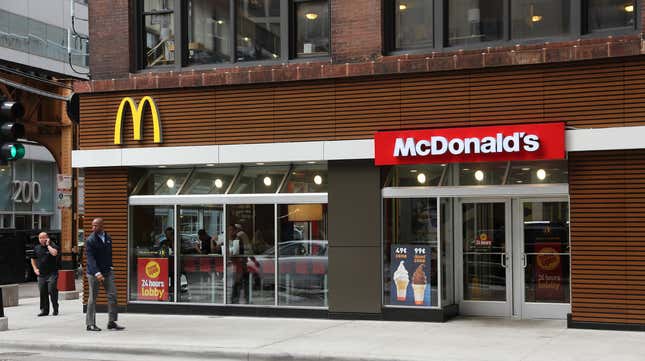
与美国的许多事情一样,麦当劳的黑人客户,工人和特许经营者在快餐连锁店的经验与白色同行的经验大不相同。上周,当两个黑人特许经营者针对种族歧视的快餐连锁店提起诉讼时,这很明显。在她的新书中特许经营:黑色美国的金拱门,历史学家玛西娅·查特兰(Marcia Chatelain)追溯麦当劳(McDonald)推动在黑人社区中建立自己的方式,并将自己定位为黑人经济发展的代理人。但实际上,她写道,这些工作实际上很少付出的代价,而黑色的特许经营者对自己社区的成员来说。
Chatelain坐下面试与克里斯蒂娜·卡特鲁奇(Christina Cauterucci)石板谈论有关这本书和黑人社区快餐历史的更多信息,以及麦当劳如何帮助和伤害住在那里的人们。令我着迷的是麦当劳如何通过其慈善机构介入为没有政府服务的人们提供服务。
所有这些原因是快餐是一个合理选择的原因。What is deeply irrational to me is that we live in a system in which people can’t make many food choices because they can’t afford electricity, or their landlord hasn’t delivered a proper refrigerator for them, or they can’t pay their gas bill one month because it got really cold. But we culturally fixate on the food problems because that’s a pathway to individualize real structural inequalities that are hard to grapple with. As I’ve gone through this process, I’ve realized I’m more indifferent about fast food and probably more indignant about capitalism than anything else.